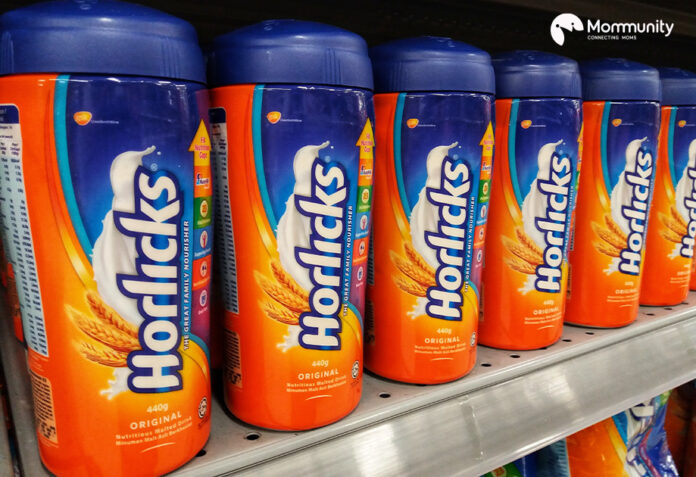|
Getting your Trinity Audio player ready...
|
Have you ever wondered if the popular health drinks like Horlicks and Bournvita that you grew up drinking are actually good for you? Have you ever questioned their claims of being essential for your growth and development? Do you know how much sugar these drinks contain?
If these questions have been on your mind, then you’re not alone. The ongoing controversy surrounding beverages like Bournvita, Horlicks, and Boost has left many parents concerned about what they’re feeding their children. In this article, we’ll dive deeper into this issue and explore the recent regulatory actions taken, the implications for parents, and more.
A Change in Course: From “Health Drinks” to “Functional and Nutritional”
In a significant move, Hindustan Unilever Limited (HUL), the owner of Horlicks and Boost, has dropped the “health drink” label from its products. This decision comes after the Ministry of Commerce and Industry directed e-commerce websites to remove all drinks and beverages from the “health” category on their platforms. The Ministry cited concerns about the high sugar content in these drinks, exceeding recommended limits.
This action highlights a growing awareness of the potentially misleading nature of the “health drink” label. The National Commission for Protection of Child Rights (NCPCR) played a crucial role in this development.
After an inquiry into the marketing practices of Bournvita, another popular brand, the NCPCR concluded that the term “health drink” lacked a clear definition under the Food Safety and Standards Act, 2006 (FSS Act). This lack of regulatory clarity allowed companies to leverage the “health” association to potentially mislead consumers.
The Spark that Ignited the Debate: Social Media and Influencer Scrutiny
The controversy gained significant momentum in 2023 when a social media influencer, Revant Himatsingka (known online as FoodPharmer), posted a video highlighting Bournvita’s high sugar content.
This video went viral, sparking widespread discussions and criticism. The NCPCR took notice and requested the FSSAI to take action against companies that mislead consumers by labeling sugary drinks as “health drinks” and failing to comply with relevant guidelines.
Beyond Sugar Content: Concerns about Scientific Backing for Health Claims
The debate extends beyond just sugar content. Experts like Dr. Abby Phillips, a hepatologist, have raised concerns about the lack of robust scientific evidence to support the specific health claims made by some of these brands. Dr. Phillips argues that claims related to muscle and bone growth, immunity enhancement, and brain development often lack controlled studies to validate them.
While companies like Mondelez India, the maker of Bournvita, defend their claims by citing adherence to Bureau of Indian Standards (BIS) regulations, the question of a higher standard for products marketed towards children remains.
Recent revelations by Nestle, another major food company, acknowledging that a significant portion of their products wouldn’t meet a “recognized definition of health,” further fuel the debate.
Moving Forward: What it Means for Parents
The evolving regulatory landscape and growing consumer awareness present both challenges and opportunities for parents seeking healthy beverage options for their children.
Challenges
- Navigating Confusing Labels
With the removal of the “health drink” label, parents may find it more challenging to identify genuinely nutritious options at first glance.
- Scrutinizing Marketing Claims
A more critical eye is needed to evaluate the health claims made on product packaging and advertisements.
Opportunities
- Focus on Ingredients
Reading food labels carefully and understanding the ingredients becomes even more crucial. Look for drinks with a high content of essential vitamins, minerals, and whole grains, with minimal added sugar.
- Exploring Alternatives
Consider options like homemade smoothies made with fresh fruits, vegetables, and milk, or diluted natural fruit juices.
- Consulting a Nutritionist
A registered dietitian or nutritionist can provide personalized guidance based on your child’s specific needs and preferences.
Empowering Informed Choices
The ongoing debate surrounding “health drinks” serves as a crucial reminder for parents to be informed decision-makers when it comes to their children’s nutrition. By staying updated on regulatory changes, understanding the sugar content and scientific backing for health claims, and exploring alternative options, parents can ensure their children receive the essential nutrients they need for healthy growth and development.
Let’s Talk!
We invite you to share your thoughts and experiences in the comments section below.
- Have you noticed a change in the marketing of these drinks?
- What challenges do you face in finding healthy beverage options for your children?
- Do you have any tips for other parents?
We can empower each other to make informed choices for our children’s health by fostering open discussions and sharing knowledge!




